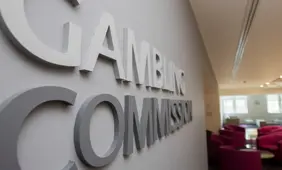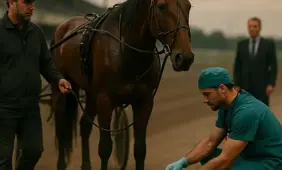Slovakia’s President Vetoes New Gambling Law, Citing Consumer-Protection Gaps
Slovak President Peter Pellegrini has returned a newly approved gambling bill to parliament, saying it fails to protect vulnerable players.

President Pellegrini on Monday declined to sign legislation passed during the National Council’s 40th session that would have overhauled how casinos and online betting are licensed and taxed in Slovakia. The bill, approved by 71 votes with seven abstentions, aimed to open local licences to both domestic and foreign operators, modernize tax collection and broaden the enforcement powers of the Office for the Regulation of Gambling (Úrad pre reguláciu hazardných hier).
Related: Slovakia Conservatives Advocate Stricter Gambling Ad Laws
Details of the Proposed Law
The draft law introduced several significant changes to Slovakia’s gambling landscape. It proposed a more liberal licensing regime intended to attract international online casino and sports-betting platforms while enabling Tipos, the state lottery operator, to assume casino licences from other operators and run offshore activities if required. New rules would have obliged Tipos to contribute a minimum of EUR 500,000 annually to gambling-harm prevention programmes and required that any new brick-and-mortar casino obtain municipal approval and remain within the same municipality to limit relocations to restricted zones.
Supporters argued the measure would boost state revenues and bring the Slovak market in line with broader European moves toward regulated online gaming. The bill also sought to tighten supervisory powers for the regulator and streamline tax procedures for digital revenues. Critics, however, said the legislation lacked concrete limits on marketing, insufficiently protected minors and other at-risk groups, and left open the possibility of regulatory gaps as operators transitioned to new licences.
Presidential advisers acknowledged that regulatory modernization is necessary but said the text submitted to the presidency did not include adequate safeguards against gambling-related harm and raised procedural concerns. The office noted several amendments had been tabled late in the legislative process, limiting the opportunity for thorough debate and assessment.
An independent Central European gaming analyst commented: "Market liberalization can deliver consumer choice and state income, but only if it is paired with robust player protection, clear advertising rules and enforced age verification. This bill moved the market in the right direction on licensing, but it left too many social-risk controls undefined."
More Regulation News
What Comes Next for Slovakia’s Gambling Market
By returning the bill, President Pellegrini has handed the measure back to MPs, who can either amend it or attempt to override the veto. Under Slovak constitutional rules, parliament may overturn a presidential veto with an absolute majority. If lawmakers insist and the bill is passed again, proponents have indicated the reformed market could take effect in 2026.
Opposition parties welcomed the president's decision and urged coalition MPs to respect the concerns raised and vote against the legislation if reconsidered. Industry observers say a confrontation in parliament could produce a revised text that tightens advertising limits, strengthens age checks and expands funding for addiction treatment, but that outcome will depend on political will and coalition cohesion.
Operators and potential market entrants will be watching closely. For Tipos, the changes would have consolidated a larger role in land-based operations while potentially opening new revenue channels online. For international platforms, a clearer licensing route into Slovakia would have been an attractive prospect – provided regulators agree stronger consumer protections are added.
Advocates for responsible gambling warned that any move to liberalize market access without parallel harm-prevention measures risks higher rates of problem gambling. A policy adviser at a Central European addiction charity said: "Opening the market without firm restrictions on advertising and without guaranteed funding for prevention and treatment is a dangerous experiment. If lawmakers want growth, they must ensure it is sustainable and safe for communities."
Parliament now faces a choice between revising the bill to address the presidency's objections or pressing ahead to override the veto. Either path will shape whether Slovakia joins a wave of European jurisdictions pursuing liberalization with stronger social safeguards or retreats toward a more conservative regulatory posture.
RELATED TOPICS: Regulation
Most Read
BETBY Launches Always-On Virtual American Football and Expanded Bet Builder Markets
Feb 04, 2026Must Read
 Interviews
Interviews
Exclusive Interview: Levon Nikoghosyan Shares AffPapa Winning Formula for Successful iGaming Events
Dec 03, 2025 Interviews
Interviews








Review this New Post
Leave a Comment
User Comments
Comments for Slovakia’s President Vetoes New Gambling Law, Citing Consumer-Protection Gaps